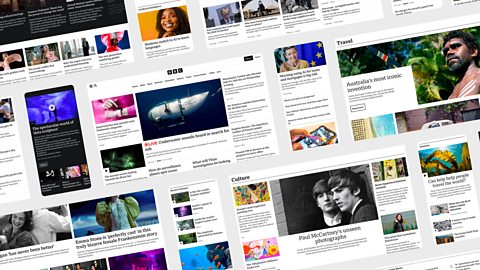Facts About News Websites Uncovered
Table of ContentsThe Facts About News Websites RevealedThe Ultimate Guide To News WebsitesFascination About News WebsitesThe Ultimate Guide To News WebsitesSome Known Questions About News Websites.
It was down in the UK and Brazil however up some other countries, such as Greece, Bulgaria, and Poland (News Websites). This year, for the first time, we asked regarding the different methods that people prevent the news and discovered that around half of avoiders (53%) were trying to do so in a broad-brush or regular method as an example, by transforming off the radio when the information came on, or by scrolling past the news in social media sitesYou said that you attempt to proactively stay clear of information.

I'm probably selecting to learn more light-hearted tales than I made use of to presently. M, 51, UK Turning my back on information is the only way I feel I can deal sometimes. I need to knowingly make the initiative to avert for the sake of my very own psychological health.
How News Websites can Save You Time, Stress, and Money.
Discerning avoidance of Ukraine news was highest in a lot of the countries closest to the conflict, enhancing findings from our added study in 2015, not long after the battle had begun. Our information may not recommend a lack of passion in Ukraine from close-by nations however rather a wish to handle time or protect psychological health from the really genuine horrors of battle.
Contrasting Finland with a politically polarised country such as the USA (see following chart) that is much less influenced by the battle, we discover a really various pattern of subject avoidance. In the USA, we find that customers are more probable to avoid topics such as national politics and social justice, where arguments over issues such as sex, sexuality, and race have actually ended up being very politicised.
American politics are quite toxic nowadays. I find often that I need to disconnect from stories that just make me mad. F, 61, USA For some individuals, bitter and dissentious political debates are a reason to transform her response off information altogether, however, for some political upholders, avoidance is usually about shutting out viewpoints you do not intend to hear.

Fascination About News Websites
Some are looking to make information extra obtainable for hard-to-reach groups, widening the news agenda, appointing even more inspiring or favorable news, or accepting constructive or remedies journalism that provide individuals a sense of hope or individual company. In our study this year, we asked respondents about their passion in these different methods.
This clarifies why tales like Ukraine or national politics execute well with news regulars but can at the very same time turn less interested users away (News Websites). Discerning avoiders are less thinking about all sorts of news than non-avoiders however in loved one terms they do seem to be more interested in positive or solutions-based news

The Only Guide for News Websites
2023). This visit might be real in the moment, yet over time it seems to be leaving lots of people empty and much less satisfied, which might be weakening our link with and count on the information. Across markets, general rely on information go to this web-site (40%) and depend on in the resources individuals use themselves (46%) are down by an even more 2 percentage points this year.
Through the rear-view mirror, the COVID-19 depend on bump is clearly visible in the following graph, though the direction of travel later on has been mixed. Sometimes (e.g. Finland), the count on rise has actually been preserved, while in others the upturn looks more like a blip in a tale of ongoing long-lasting decrease.
Some of the greatest reported levels of media objection are discovered in nations with highest degree of distrust, such as Greece, the Philippines, the United States, France, and the United Kingdom. The cheapest degrees of media criticism are often in those with higher levels of trust fund, such as Finland, Norway, Denmark, and Japan.
What Does News Websites Do?
This year we asked participants regarding their preferences for message, audio and video clip when consuming information online. Typically, we discover that the bulk still prefer to read the news (57%), instead than watch (30%) or pay attention to it (13%), but more youthful people (under-35s) are more most likely to pay attention (17%) than older teams.
Behind the averages we find considerable and surprising country distinctions. In markets with a solid analysis practice, such as Finland and the United Kingdom, around 8 in ten still like to check out online information, yet in India and Thailand, around 4 in ten (40%) say they prefer to watch news online, and in the Philippines that percentage is over half (52%).